Sustainable Architecture
and Aesthetics
A Project by Sabin Design Lab
Cornell University

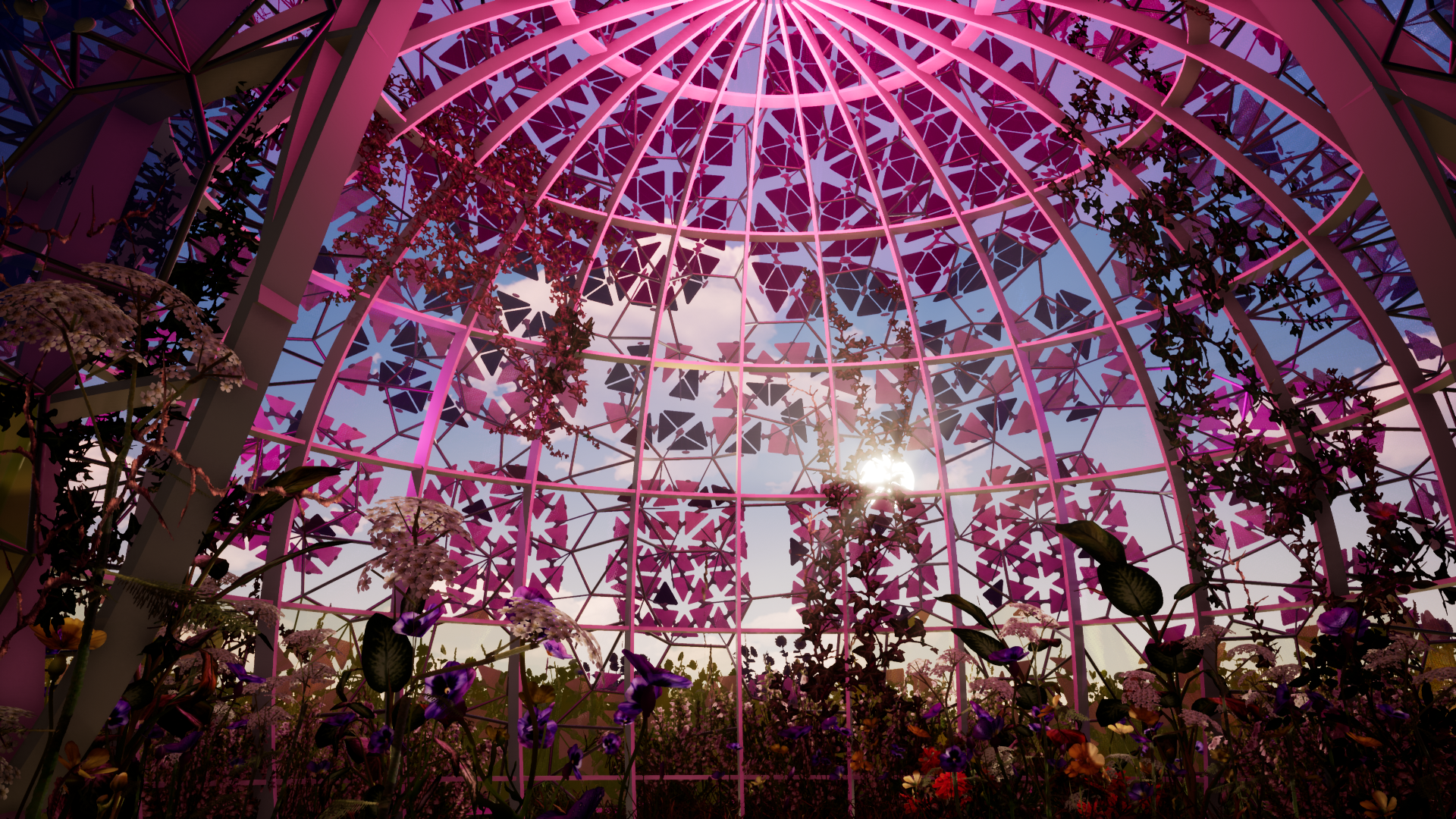
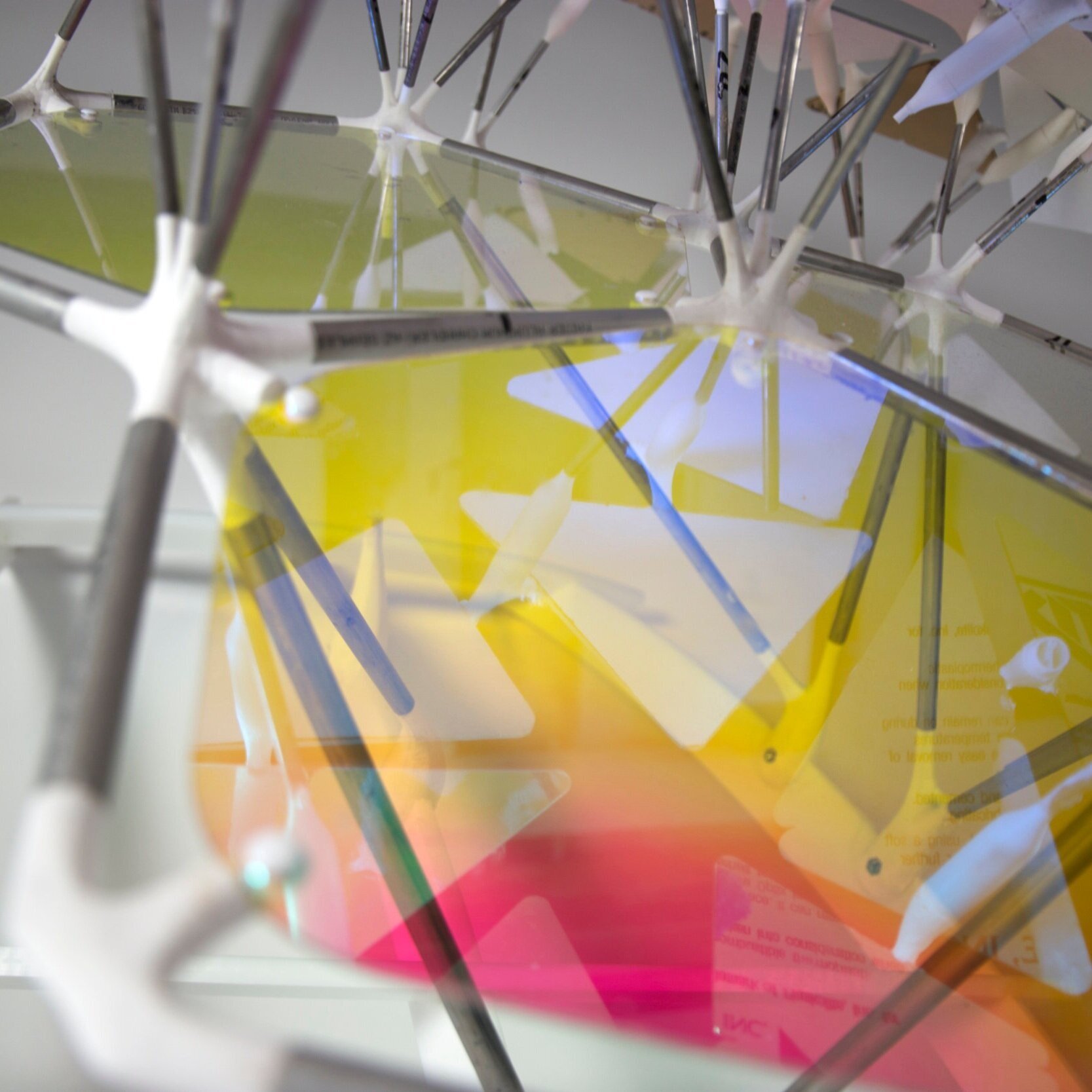
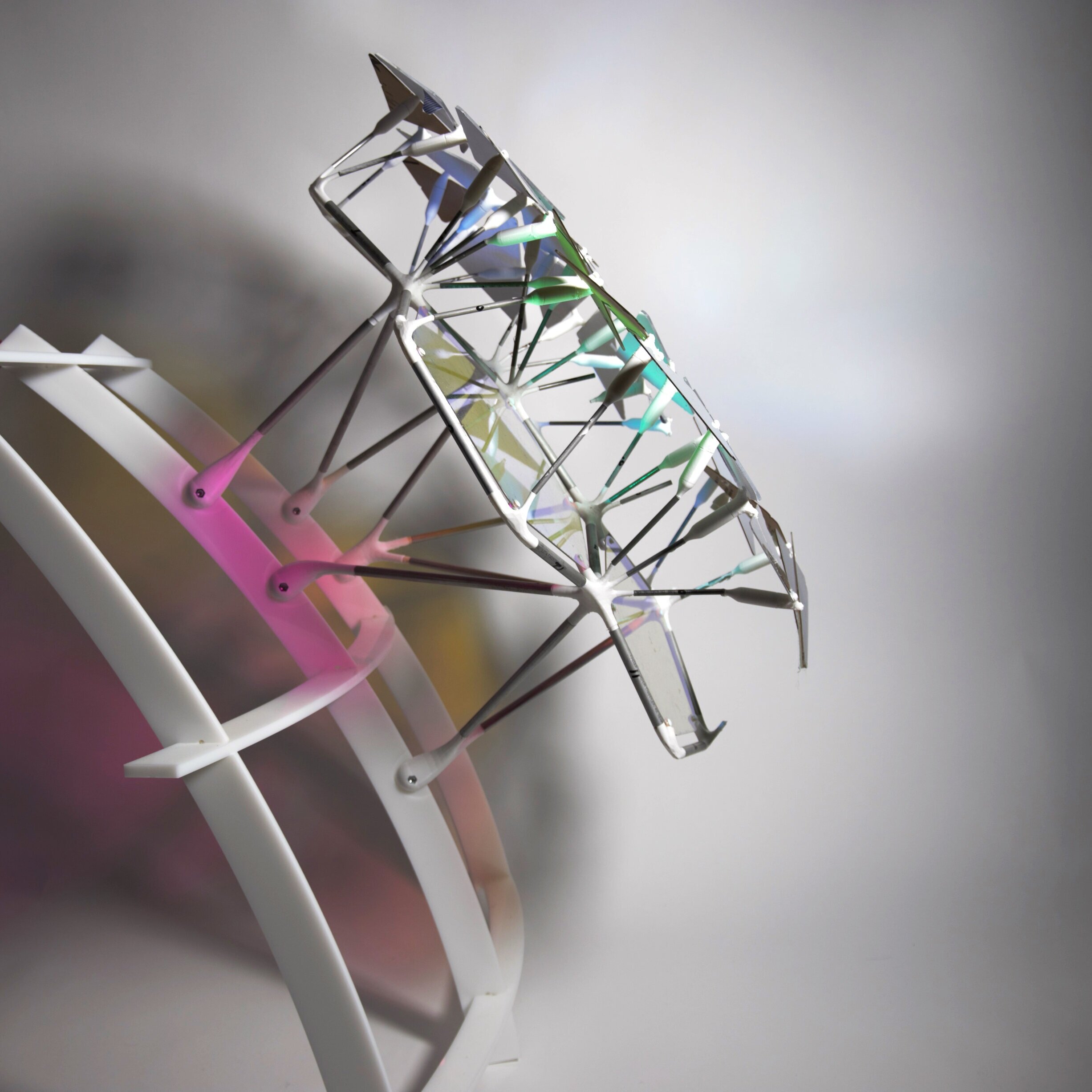
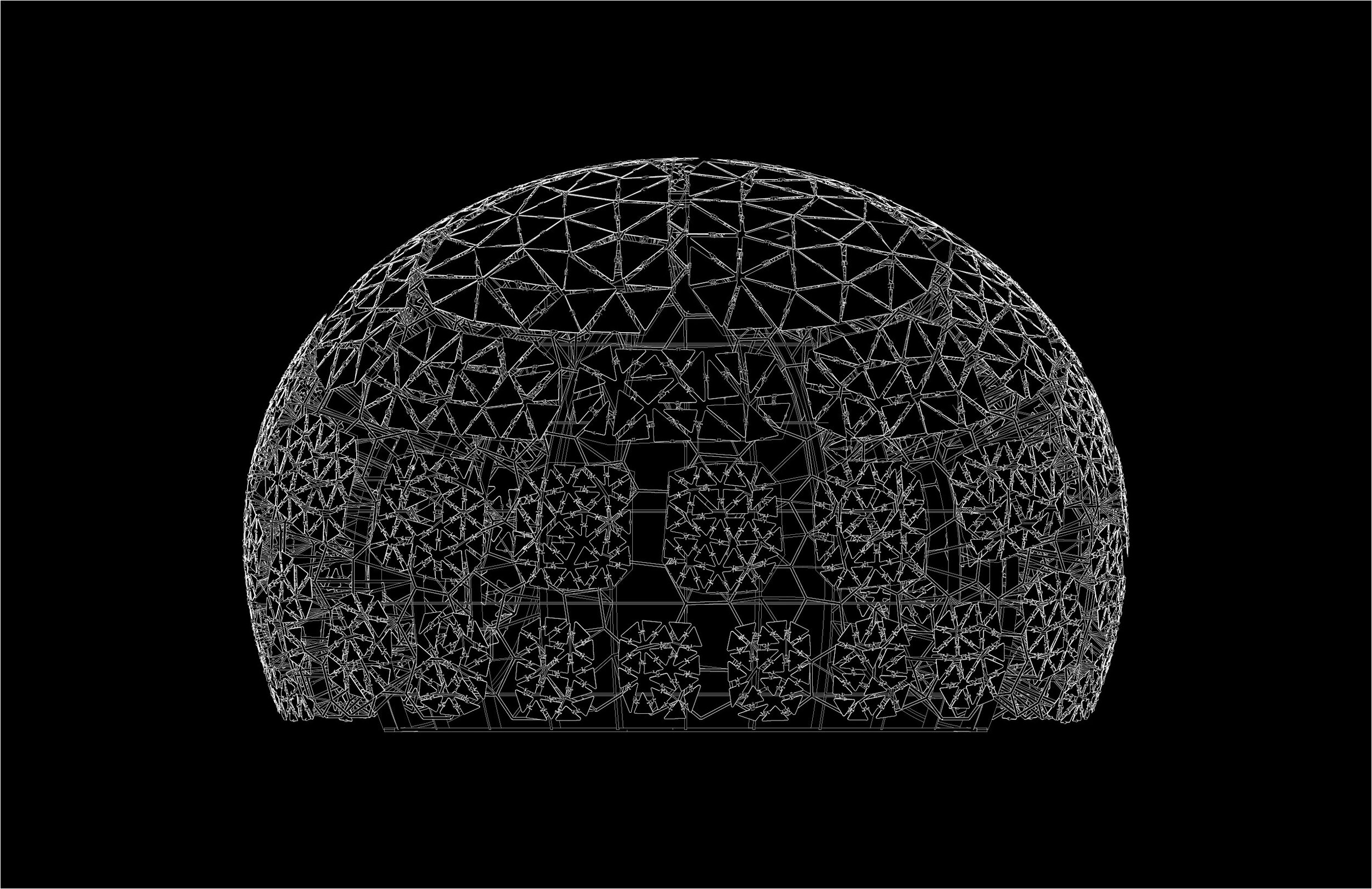
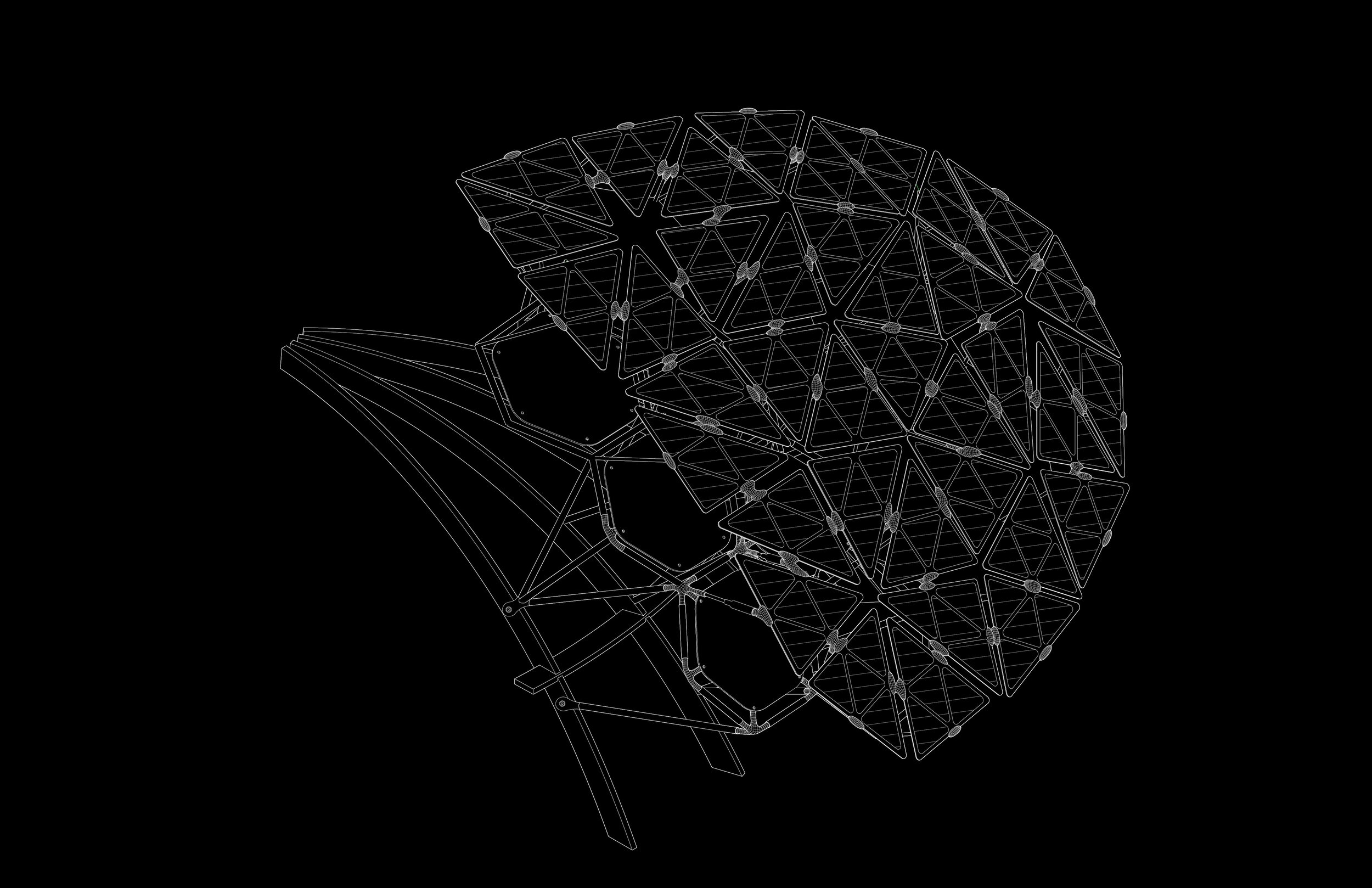
SAA Research Team
Allison Bernett*, Jeremy Bilotti*, Begum Birol*, Omar Dairi*, Alexander Htet Kyaw*, April Jeffries*, Ian Pica Limbaseanu*, Mariana Bertoni, Jenny E. Sabin (*Researchers contributed equally)
This project, a unique collaboration between the Sabin Lab at the College of Architecture, Art, and Planning at Cornell University and the DEfECT Lab at Arizona State University, innovates the design and engineering of Building Integrated Photovoltaics (BIPV) through computational design and 3D printing to create highly customized non-standard filters and panels that result in site-specific non-mechanical tracking solar collection systems. Beginning with biological adaptations including heliotropic mechanisms in sunflowers and the light-scattering structures in Lithops plants, non-conventional configurations of panels for designing with light and energy are investigated to maximize energy conversion efficiency. Our proposed approach follows solar path data and omits the typical 50% additional structural metal and 30% copper cable per module, which significantly decreases the carbon intensity by 15% for the case of an installation in the southwest. As a result, Agrivoltaic Pavilion demonstrates the first adaptable system with extremely low greenhouse gas emissions, showcasing the potential of sustainable design for a resilient land use model to provide an integrated approach to food, energy, and water.
